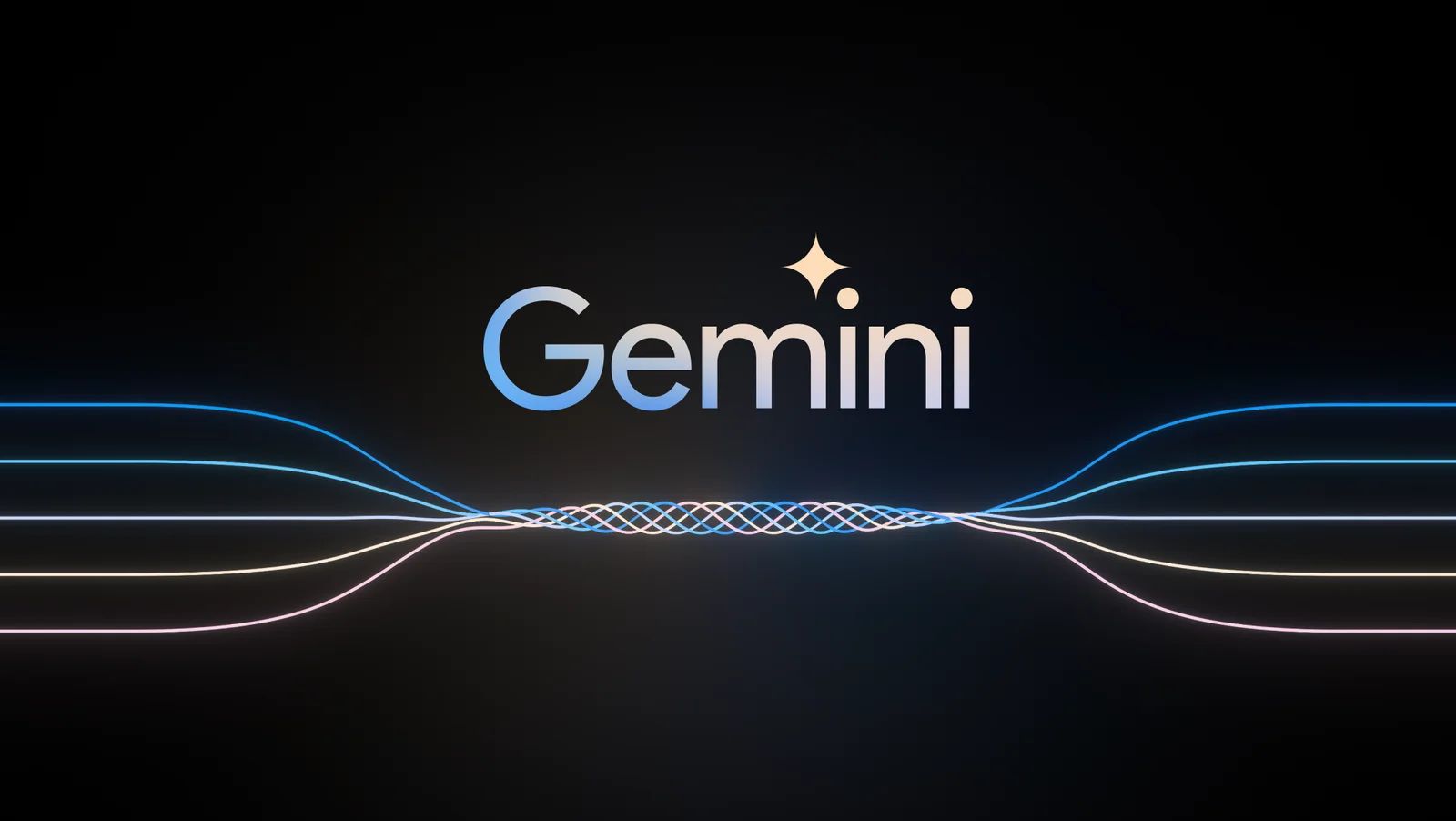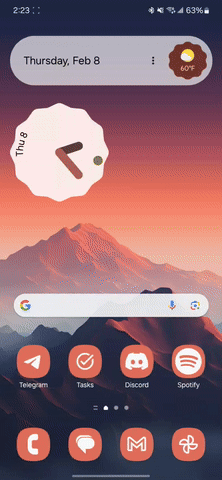We’ve been hearing for a while that Google’s been gearing up for a rebrand of its AI chatbot, formerly known as Bard. The company surprised us all today by rolling out that change in force: Bard is now Gemini, named after the LLM that powers the experience. There’s also a new Gemini app available, and you can set it as your Android phone’s default voice assistant, which will see Gemini pop up where the Google Assistant would have before. I’ve been playing with the new AI assistant for a few hours, and it’s occasionally kind of incredible. I don’t think it’s necessarily a good drop-in Assistant replacement, though — at least not yet.
The Gemini app is available on the Play Store right now. At first blush, it doesn’t look like much more than a wrapper for the browser-based Bard experience that’s been available for some time. You can interact with Gemini by voice, text, or uploading a photo; interactions are presented like chat conversations that you can scroll back through. Gemini also saves your conversations so you can refer back to them later. You can delete these conversations, or pin them for quick access. If you’re using Gemini to brainstorm or research specific topics, these organization features will probably be pretty handy.
You can set the new Gemini app to act as your phone’s default voice assistant. If you elect to do that, Gemini will respond instead of Assistant when you swipe in from the corner of your screen or say Hey Google. One big benefit of having Gemini as your voice assistant is that it’s a lot better at answering complex questions — the kind of queries that’d return “I don’t know, but I found these results on Search” from Google Assistant.
I asked Gemini to name bands similar to UK post-punk outfit Idles, and it served me a selection of artists that fit the bill, complete with short snippets that explained how each met my search criteria. I asked it for tricks that are easy to teach to puppies, and it came back with a bulleted list of simple commands (sit, shake, down) and brief instructions on how to teach them.
Because Gemini is a chatbot, you can respond to its responses — you can converse with it. After Gemini gave me that list of puppy commands, I asked for more info about teaching “shake,” and it gave a comprehensive six-step plan, complete with reminders to be patient and use positive reinforcement.
There’s a Google G button presented with each response that you can tap to have Google check its own work. It’ll highlight different sections of Gemini’s response and cite sources pulled from Google Search that say similar things. That button doesn’t always work, though; AP’s Will Sattelberg says Gemini failed to identify factual inaccuracies in responses he got. I tried to get Gemini to fact-check its “shake” plan, and it only said “No results found.”
And if you ask Gemini where its answers come from, specifically, it won’t tell you — Gemini says its instructions on how to teach a puppy to shake paws “are based on common practices used by dog trainers and pet owners alike,” and that they’re “not attributed to any specific source or individual.”
I’d accept that kind of answer from a person, but coming from a chatbot that absolutely is using specific sources, it’s not at all satisfying, and as someone who writes online, it really rubs me the wrong way. Gemini could very well parrot my writing on certain topics, then refuse to say where it got its info. That sounds a lot like plagiarism to me, but c’est la blog.
Integration with Google’s other products is where Gemini really gets interesting. Once you link it to Google Workspace (it’ll prompt you to do that when it needs access), you can have Gemini search your Gmail and Google Drive for information about specific topics. It doesn’t always know when to do that — I asked Gemini when some books I ordered are arriving, and it asked for more info. I told it I should have a confirmation email, and it found that email in my Gmail inbox and let me know that the books were out for delivery.
This ease of access to information scattered across my Google account is the kind of ecosystem magic Assistant always seemed like it should offer, but never did. It’s early days for Gemini, and I don’t feel the app is quite ready for prime time yet. I have to think Google is letting users opt into the Gemini-powered assistant experience now to iron out the kinks before it eventually becomes the default — a good move, because there are still plenty of kinks.
Integration with Google’s other products is where Gemini really gets interesting.
So far, Gemini seems slower than Assistant: interactions initiated with Hey Google take a weirdly long time to get going, with a few beats between when you stop talking and when Gemini registers that you’ve finished (you can tap a send button to let it know you’re done, but that doesn’t help if your phone is out of arm’s reach). Interactions also take longer in general, with Gemini apparently processing your inputs for considerably longer than Assistant ever does.
For a lot of tasks you’d normally handle with Assistant, Gemini just relays your input. Commands for controlling smart lights, for example, still go through the Google Assistant, with Gemini as a middleman. And commands like that only work by voice: if you type something like “turn the lights on,” Gemini will say it “can’t assist with controlling physical devices in the real world.” It doesn’t mention trying voice input.
Gemini also seems pretty easily confused, generally: I asked it how much battery I had left, assuming it would know I meant on the phone I was currently speaking to, and it gave me my smart vacuum’s battery level. When I specified “…on this phone,” it was able to give me the right info.

Google Gemini: Everything you need to know about Google’s next-gen multimodal AI
Google Gemini is here, with a whole new approach to multimodal AI: Here’s what you should know.
It’s early days for Gemini, though, and we haven’t had all that much time to experiment with it yet. But it’s easy to see how Gemini could build on the better parts of Assistant to make a digital assistant that’s actually helpful. With all the buzz around AI right now, I’m confident Google’s going to keep at it with Gemini, at least in the near term — and based on my experience with it today, info sourcing concerns aside, I’m actually kind of excited about that possibility.
Source link



